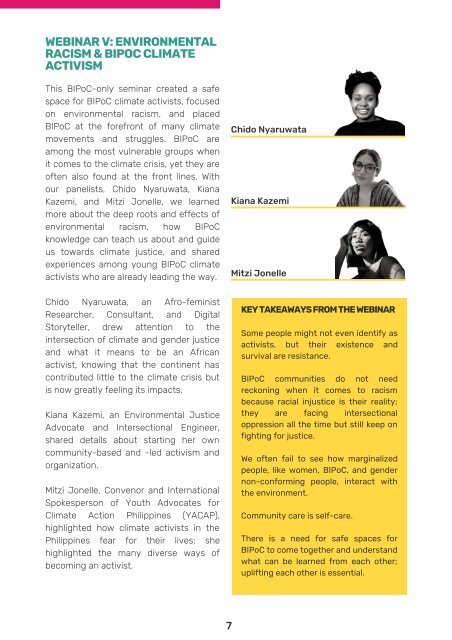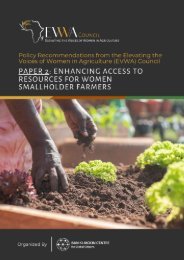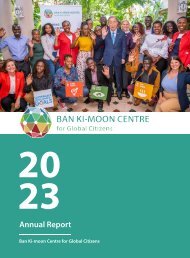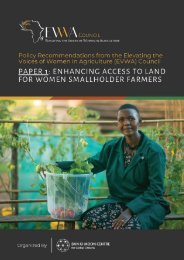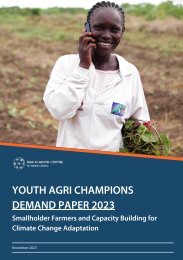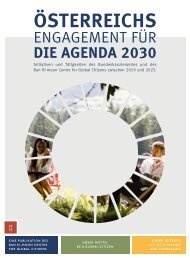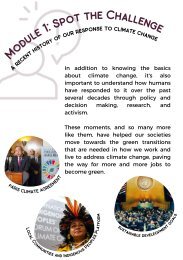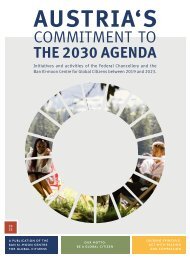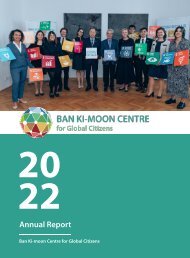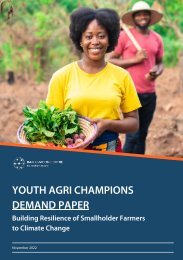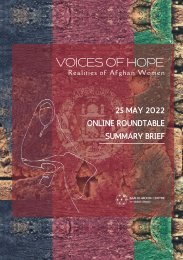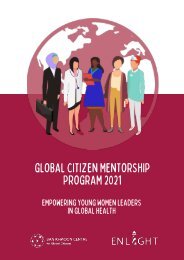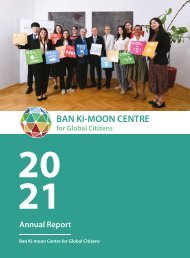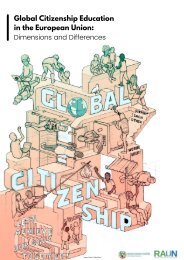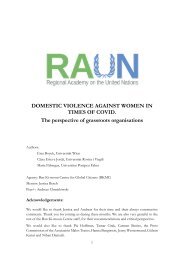Policy Brief - Climate Justice 4 All
You also want an ePaper? Increase the reach of your titles
YUMPU automatically turns print PDFs into web optimized ePapers that Google loves.
WEBINAR V: ENVIRONMENTAL<br />
RACISM & BIPOC CLIMATE<br />
ACTIVISM<br />
This BIPoC-only seminar created a safe<br />
space for BIPoC climate activists, focused<br />
on environmental racism, and placed<br />
BIPoC at the forefront of many climate<br />
movements and struggles. BIPoC are<br />
among the most vulnerable groups when<br />
it comes to the climate crisis, yet they are<br />
often also found at the front lines. With<br />
our panelists, Chido Nyaruwata, Kiana<br />
Kazemi, and Mitzi Jonelle, we learned<br />
more about the deep roots and effects of<br />
environmental racism, how BIPoC<br />
knowledge can teach us about and guide<br />
us towards climate justice, and shared<br />
experiences among young BIPoC climate<br />
activists who are already leading the way.<br />
Chido Nyaruwata<br />
Kiana Kazemi<br />
Mitzi Jonelle<br />
Chido Nyaruwata, an Afro-feminist<br />
Researcher, Consultant, and Digital<br />
Storyteller, drew attention to the<br />
intersection of climate and gender justice<br />
and what it means to be an African<br />
activist, knowing that the continent has<br />
contributed little to the climate crisis but<br />
is now greatly feeling its impacts.<br />
Kiana Kazemi, an Environmental <strong>Justice</strong><br />
Advocate and Intersectional Engineer,<br />
shared details about starting her own<br />
community-based and -led activism and<br />
organization.<br />
Mitzi Jonelle, Convenor and International<br />
Spokesperson of Youth Advocates for<br />
<strong>Climate</strong> Action Philippines (YACAP),<br />
highlighted how climate activists in the<br />
Philippines fear for their lives; she<br />
highlighted the many diverse ways of<br />
becoming an activist.<br />
KEY TAKEAWAYS FROM THE WEBINAR<br />
Some people might not even identify as<br />
activists, but their existence and<br />
survival are resistance.<br />
BIPoC communities do not need<br />
reckoning when it comes to racism<br />
because racial injustice is their reality;<br />
they are facing intersectional<br />
oppression all the time but still keep on<br />
fighting for justice.<br />
We often fail to see how marginalized<br />
people, like women, BIPoC, and gender<br />
non-conforming people, interact with<br />
the environment.<br />
Community care is self-care.<br />
There is a need for safe spaces for<br />
BIPoC to come together and understand<br />
what can be learned from each other;<br />
uplifting each other is essential.<br />
7


